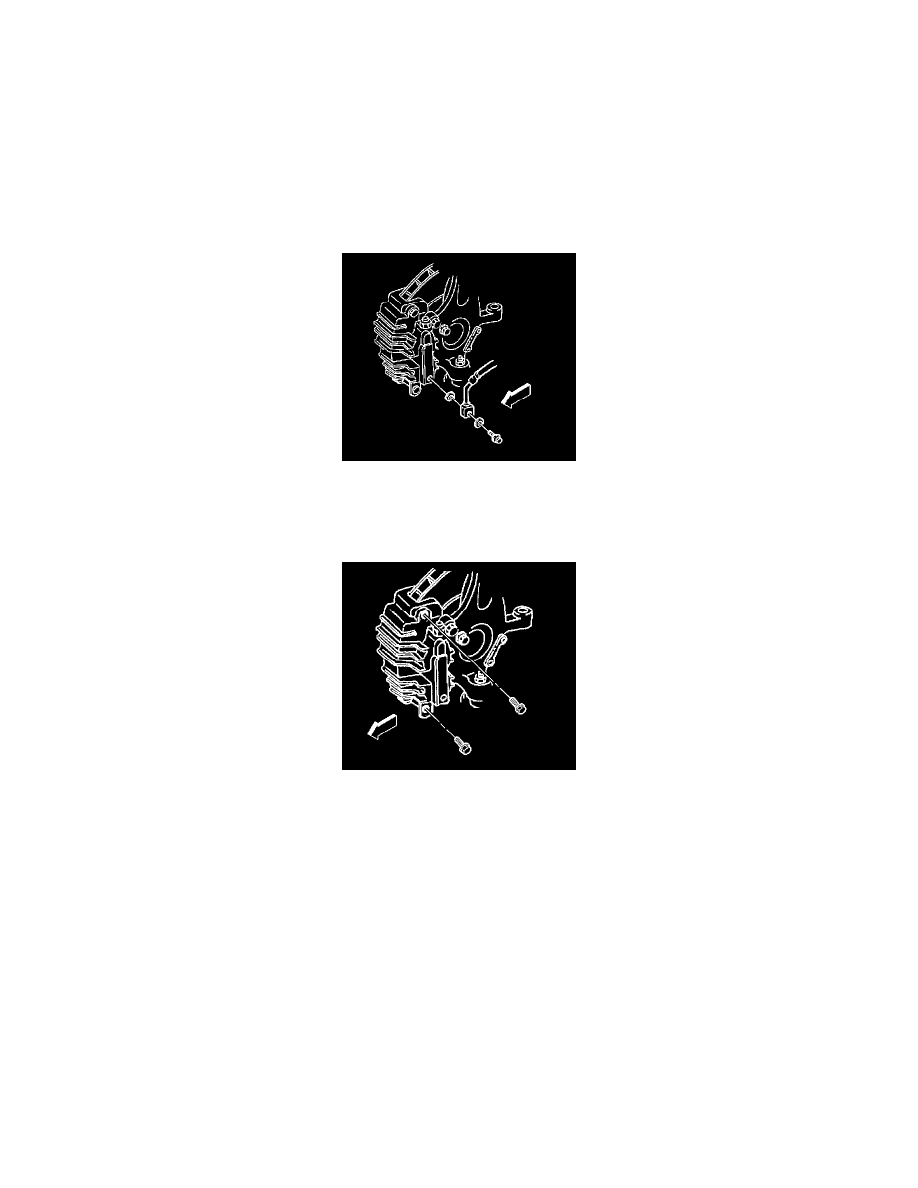Corvette V8-6.2L (2008)

Notice: Refer to Brake Fluid Effects on Paint and Electrical Components Notice (See: Service Precautions/Vehicle Damage Warnings/Brake Fluid
Effects on Paint and Electrical Components Notice) .
1. Inspect the fluid level in the brake master cylinder reservoir.
2. If the brake fluid level is midway between the maximum-full point and the minimum allowable level, no brake fluid needs to be removed from the
reservoir before proceeding.
3. If the brake fluid level is higher than midway between the maximum-full point and the minimum allowable level, remove brake fluid to the
midway point before proceeding.
4. Raise and suitably support the vehicle. Refer to Lifting and Jacking the Vehicle (See: Maintenance/Service Intervals) .
5. Remove the tire and wheel assembly. Refer to Tire and Wheel Removal and Installation (See: Maintenance/Wheels and Tires/Service and Repair)
.
6. Remove the brake caliper inlet fitting bolt from the caliper.
7. Remove the brake hose from the brake caliper.
8. Remove and discard the 2 copper brake hose gaskets. These gaskets may be stuck to the brake caliper and/or the brake hose end.
9. Plug the opening in the brake caliper and the brake hose to prevent fluid loss and contamination.
10. Remove the brake caliper guide pin bolts.
11. Remove the brake caliper from the caliper mounting bracket.
Installation Procedure
1. Inspect the caliper slide boots for cuts, tears, or deterioration. If damaged, replace the slides and the boots. Refer to Front Disc Brake Hardware
Replacement (JL9-J55) (See: Disc Brake System/Service and Repair/Front Disc Brake Hardware Replacement (JL9-J55))Front Disc Brake
Hardware Replacement (J56) (See: Disc Brake System/Service and Repair/Front Disc Brake Hardware Replacement (J56)) .
